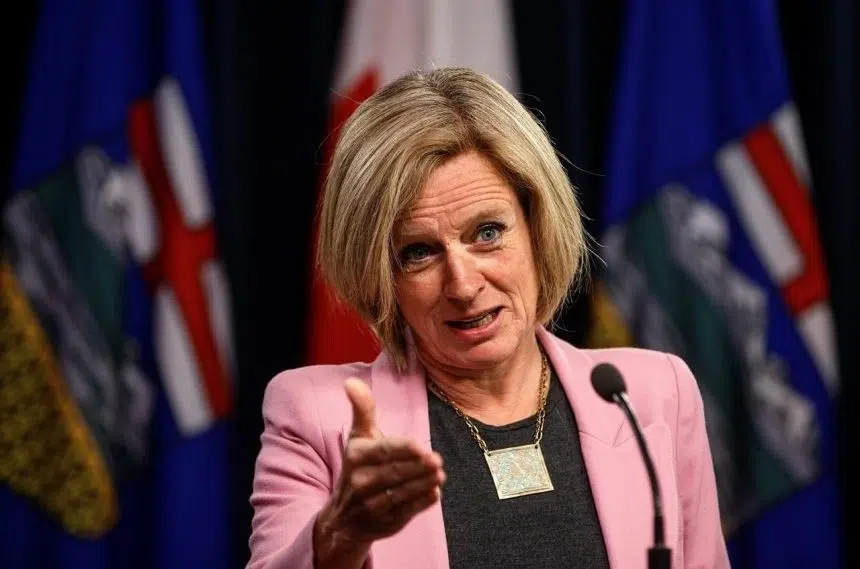EDMONTON — Alberta has passed landmark legislation giving it sweeping power to intervene in oil and gas exports that could result in punitive price spikes in British Columbia in the dispute over the Trans Mountain oil pipeline expansion.
Premier Rachel Notley won’t say when and how the power will be used, but said she won’t wait long.
“Alberta will be equipped with new tools to assert our rights to control the flow of our resources to British Columbia,” Notley said Wednesday prior to Bill 12 passing third and final reading.
“Albertans, British Columbians and all Canadians should understand that if the path forward for the pipeline through B.C. is not settled soon, I’m ready and prepared to turn off the taps.”
The bill would give Alberta the power to intervene in the energy market, to decide how much fuel is sent and by what means, be it by rail or pipeline.
B.C. Premier John Horgan called the Alberta law provocative.
“Instead of asking how can we work together on this, they took aggressive action,” he said in Chilliwack, B.C.
B.C. Attorney General David Eby, in a letter, said legislation designed to inflict harm on another province violates the constitution.
He urged Alberta Justice Minister Kathleen Ganley to first run the bill past the courts to confirm its legality.
“In the absence of such a commitment, I intend to instruct counsel to bring an action challenging its constitutional validity in the courts of Alberta,” said Eby.
“Bill 12 is a step back towards trying to resolve differences through threats of economic harm.”
Cutting oil flow to B.C. is expected to cause price spikes in gas at the pumps along with other related fuel fees.
But Notley said it’s justified legislation, given that Alberta is losing billions of dollars due to transportation bottlenecks and the fact that B.C. is frustrating the federally approved Trans Mountain project.
“With pipeline capacity stretched to the limit, Albertans have the right to choose how our energy is shipped,” said Notley.
“Alberta has the right to act in the public interest.”
The Trans Mountain expansion would triple the amount of oil flowing from Alberta to tankers on the B.C. coast.
Notley said Alberta oil sells at a discount because of tight pipeline capacity and because most of it goes to the United States. A better price could be fetched on overseas markets.
The $7.4-billion project was approved by Prime Minister Justin Trudeau’s government in 2016, but since then has been hamstrung by permit delays and court challenges in B.C.
Horgan has said his government remains concerned about the effects of spills on the inland waterways and coastline.
The pipeline owner, Texas-based Kinder Morgan, has scaled back spending on the line and has given Trudeau’s government until May 31 to show that there is a way to complete it.
The Alberta and federal governments have committed to backstopping the project with public dollars if that’s what it takes to make sure it’s completed.
Earlier Wednesday, federal Finance Minister Bill Morneau said those talks continue. He said if Kinder Morgan wants to abandon the expansion, there are plenty of other investors willing to step up.
Notley’s bill echoes similar legislation passed in Alberta a generation ago in the early 1980s in a dispute with Ottawa over oil ownership and pricing.
Dean Bennet, The Canadian Press







